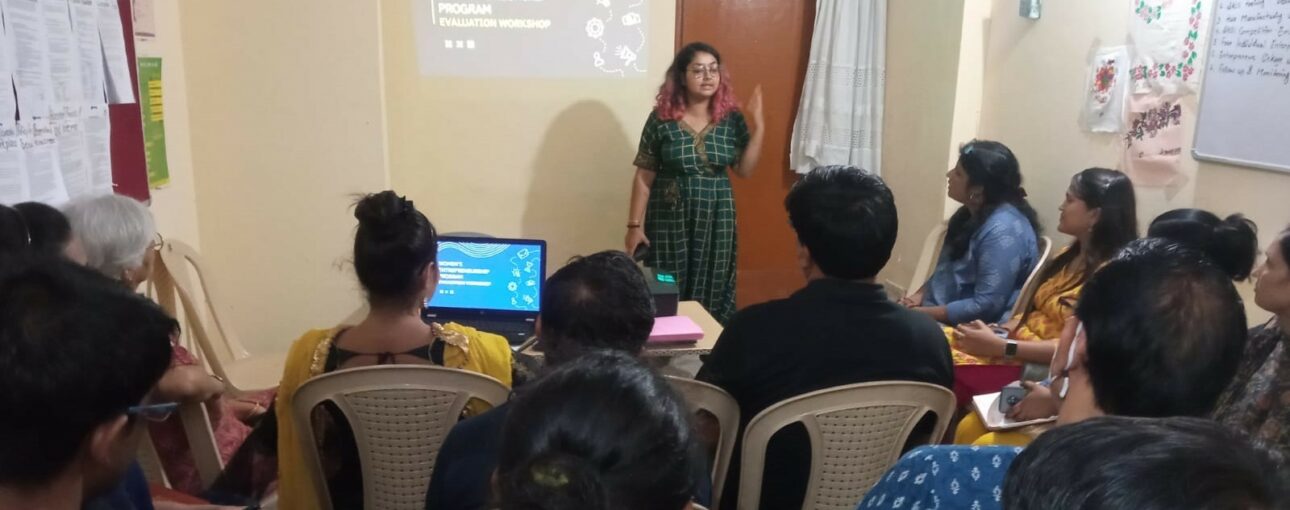On my second day of volunteering at ETASHA
Society, I found myself attending a Spoken English class at the Mori Gate
centre in North Delhi. The room, outfitted with wicker chairs locally known as
‘Moodhas,’ was occupied by about eight or nine trainees who were around my age,
19. Despite the grey, overcast skies and the muddiness from the rain, the
trainees’ energy and brightness remained undiminished.
I introduced myself as Sagaree. I shared
that I lived and studied in the United States and, being in Delhi for a few
weeks, I wanted to contribute by teaching English and writing for ETASHA. As I
spoke, my voice creaked from disuse, my American accent altering my English,
instantly marking me as an NRI.
“I’m from A-mer-i-ca, I suppose,” I
carefully enunciated in response to a trainee’s question, as advised by the
facilitators. “But my family – grandparents, cousins, aunts – are all here. I
visit India whenever I can.”
Vicki, the inquisitive trainee with his
hair puffed upwards and quick feet, leaned back against the wall in a relaxed
posture, seemingly satisfied with my response.
“So, you are native Indian!” he exclaimed.
The term “native Indian” struck a
chord with me. During my time in Delhi, reactions to my background varied both
inside and outside ETASHA – some showed admiration, others skepticism. I was
asked about everything from American movies to whether I knew a doctor cousin
in California.
I immersed myself in understanding Delhi’s
vibrant essence, adjusting my speech to sound higher and sweeter, joining in
with the jokes, and often ending my sentences with a question or a shrug.
Navigating the city’s rhythm, I enunciated
my Ts and integrated myself into an extended family network. I embraced the
local chai culture, preferring sugar on the side, and was amused to find that
‘onion rings’ in an American-themed restaurant were actually pakoras, and the
‘Mexican fajitas’ surprisingly contained paneer.
I absorbed new phrases and concepts,
switching from “NGOs” instead of “non-profits” to
“standards” in place of “grades.” I grappled with being
labeled an NRI, or less flatteringly, an ABCD, and found it amusing that I was
expected to be familiar with Sachin Tendulkar and Honey Singh.
The trainees shared stories from
neighborhoods I’d never heard of – Seemapuri, Madhanpur Khadar, Tigri, and
Dakshinpuri. Their tales of aspirations and daily life were enlightening –
Bhagwan, whose father painted houses and who dreamt of becoming a consultant;
Vipnesh, who once aspired to join the army but now sought another way to help
people at ETASHA; Deepak, who wished to be a manager like his father in the
Railways; and Durga, who at 22, married with a daughter, was learning English
to teach her.
In a recent conversation class at ETASHA’s
Tigri centre, I witnessed the remarkable growth in confidence and expression of
a batch from their first to the twelfth week. The trainees chose
“India” as the discussion topic, brainstorming under categories like
food, history, festivals, culture, sports, and geography. The whiteboard soon
overflowed with their thoughts – from “Ma’am, food!” to “Ma’am,
personality.”
We shared laughter over cultural nuances,
like my attempt to shake hands with my Dadiji, and delved into topics ranging
from Holi traditions to the Yamuna River’s pollution problems. While
interacting in my broken Hindi with the staff and trainees, I expressed my
intention to teach. Vikram, a fellow trainee, shared his aspirations to teach
English after completing his data entry job with ETASHA. His question,
“America, or back to India? India is very good,” left me pondering.
The trainees, without hesitation, included
me in Delhi’s mesmerizing tapestry, more than I might have realized I belonged.
My heart, filled with mixed emotions and a deep sense of longing for a place to
belong, left me undecided about where my journey would lead.
I told Vikram, “I haven’t decided
yet.”
Author: Sagaree Jain was a
volunteer in Delhi.
